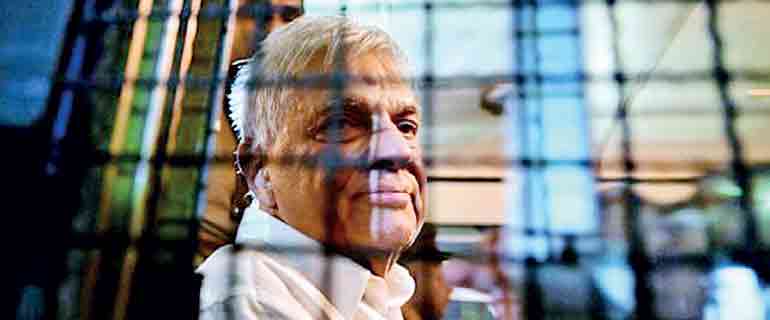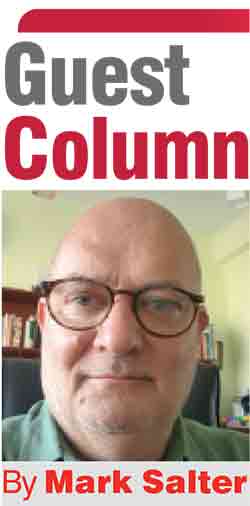Wednesday Nov 12, 2025
Wednesday Nov 12, 2025
Friday, 29 August 2025 03:56 - - {{hitsCtrl.values.hits}}

The charges themselves are the subject of continuing scrutiny and debate
“Turning and turning in the widening gyre
The falconer cannot hear the falconer
Things fall apart, the centre cannot hold
Mere anarchy is loosed upon the world”
– W.B. Yeats, The Second Coming
 Last weekend’s arrest of former Sri Lankan president (and many times prime minister) Ranil Wickremesinghe on corruption charges has unsurprisingly generated large amounts of heat – but not, so far at least, much light.
Last weekend’s arrest of former Sri Lankan president (and many times prime minister) Ranil Wickremesinghe on corruption charges has unsurprisingly generated large amounts of heat – but not, so far at least, much light.
The charges themselves are the subject of continuing scrutiny and debate. Does the failure to declare the costs incurred by a 2023 visit to the UK en route from official business in Cuba and New York constitute corrupt behaviour by the former president, and as such worthy of official investigation and eventual punishment?
The courts are expected to make a determination in this regard, most probably sooner rather than later. Suffice to say that for now, the jury remains – literally – out on the subject, with one side urging the Government to follow through on making a showcase of Wickremesinghe in its declared war on official corruption, the other decrying his arrest as emblematic of a targeted NPP administration-directed campaign of political victimisation against its opponents.
There are solid arguments of varying kinds to consider on both sides of the debate. Public reaction to the arrest suggests that a significant number of Sri Lankans both welcome Wickremesinghe’s detention and see it as just deserts for the ills – unrelated to the corruption charges against him, it should be noted – he is seen as having visited on the country, most notably the austerity policies instigated in the wake of his July 2022 appointment as president: this, too, in the wake of the economic meltdown that followed Gotabaya Rajapaksa’s disastrous presidential tenure, enforced resignation and departure from the country.
On the other side, there is, for example, the suggestion that the move against Wickremesinghe smacks of political victimisation, fuelled perhaps by the desire of older members of the JVP politburo, the main party in the ruling NPP coalition, to take revenge on someone closely identified with the then UNP Government’s violent, no-holds barred moves to squash the JVP-led 1987-89 uprising. (While nothing concrete that I’ve seen has been said to date in support of this suggestion, it remains an ostensibly credible, if contested interpretation of events.)
Overall, much has already been said and written on this subject, and from both sides: while some commentators try and stick to some form of a middle line, most come down broadly on one side or the other of the fence. In this context, moreover, one thing that definitely deserves more attention is the deepening social polarisation evinced by this event. In an acute study of online (specifically Facebook-based) discussion of Wickremesinghe’s arrest, Sanjana Hattotuwa identifies a number of salient – and troubling – features of prevailing online discourse, arguably the most significant of which is precisely deepening polarisation.
To read Hattotuwa’s analysis is to be brought into a world where one person’s hero is another thorough-going villain: where what one side portrays as the rule of law in action is seen by the other as targeted political victimisation. The point here is not to declare in favour of one side or the other, but rather to understand – as Hattotuwa himself points out here and elsewhere – that what’s on display is political polarisation: a process that leads inexorably towards mutual incomprehension, the absence of a space – or indeed a language – in which to engage in meaningful political dialogue or exchange.
That is the import of the Yeats quotation above. Some may well feel that this represents a new reality – both in Sri Lanka and elsewhere – that simply needs to be recognised. For politicians in Sri Lanka – and in particular proponents of democracy – however, it’s surely something that needs to be not only recognised but also actively addressed, if not combatted. For ultimately, seeking to maintain a public space for debate and discourse is, perhaps, at least as important as the struggle against impunity and corruption. How can we do democratic politics without sustaining a common language in which to talk to each other?